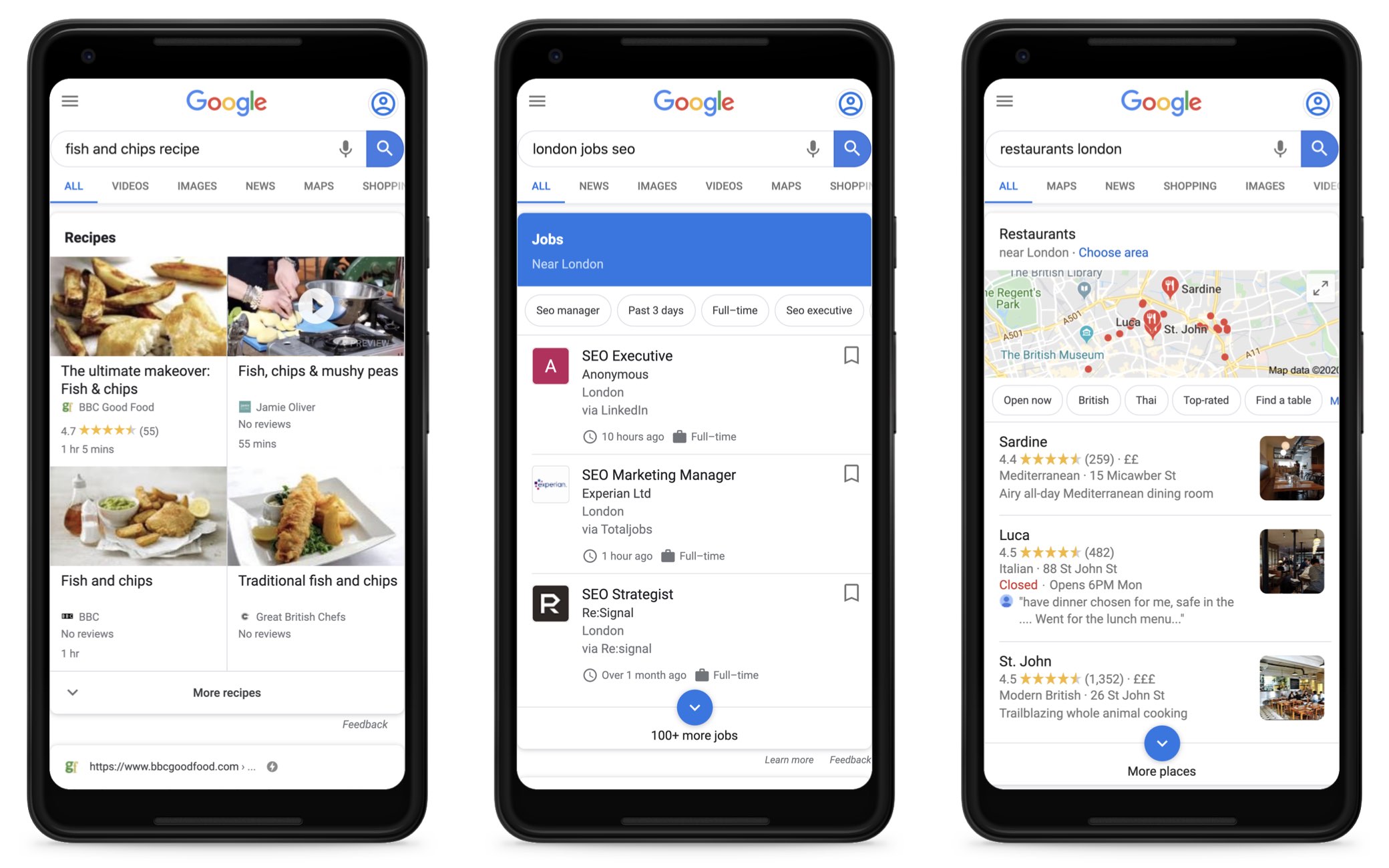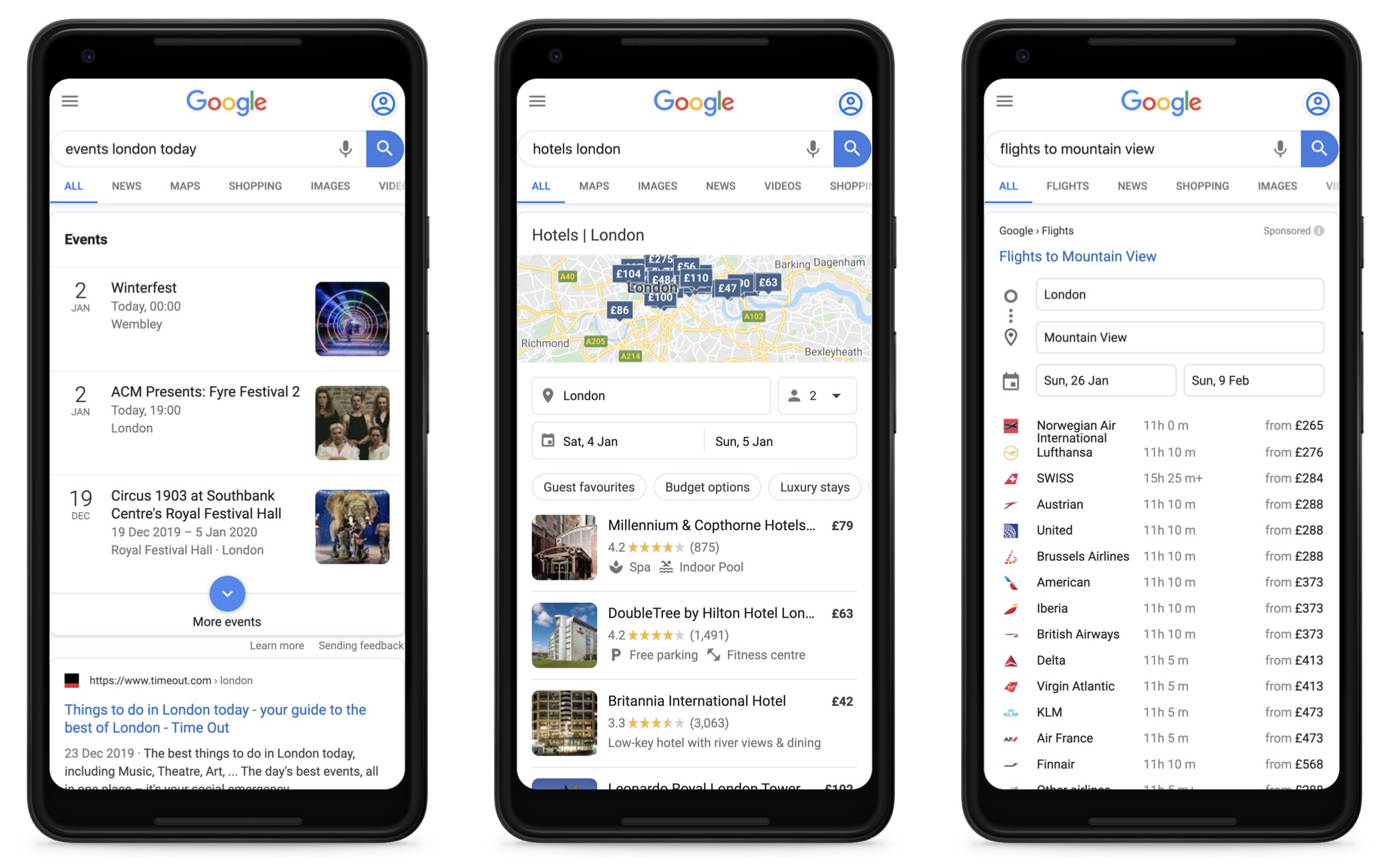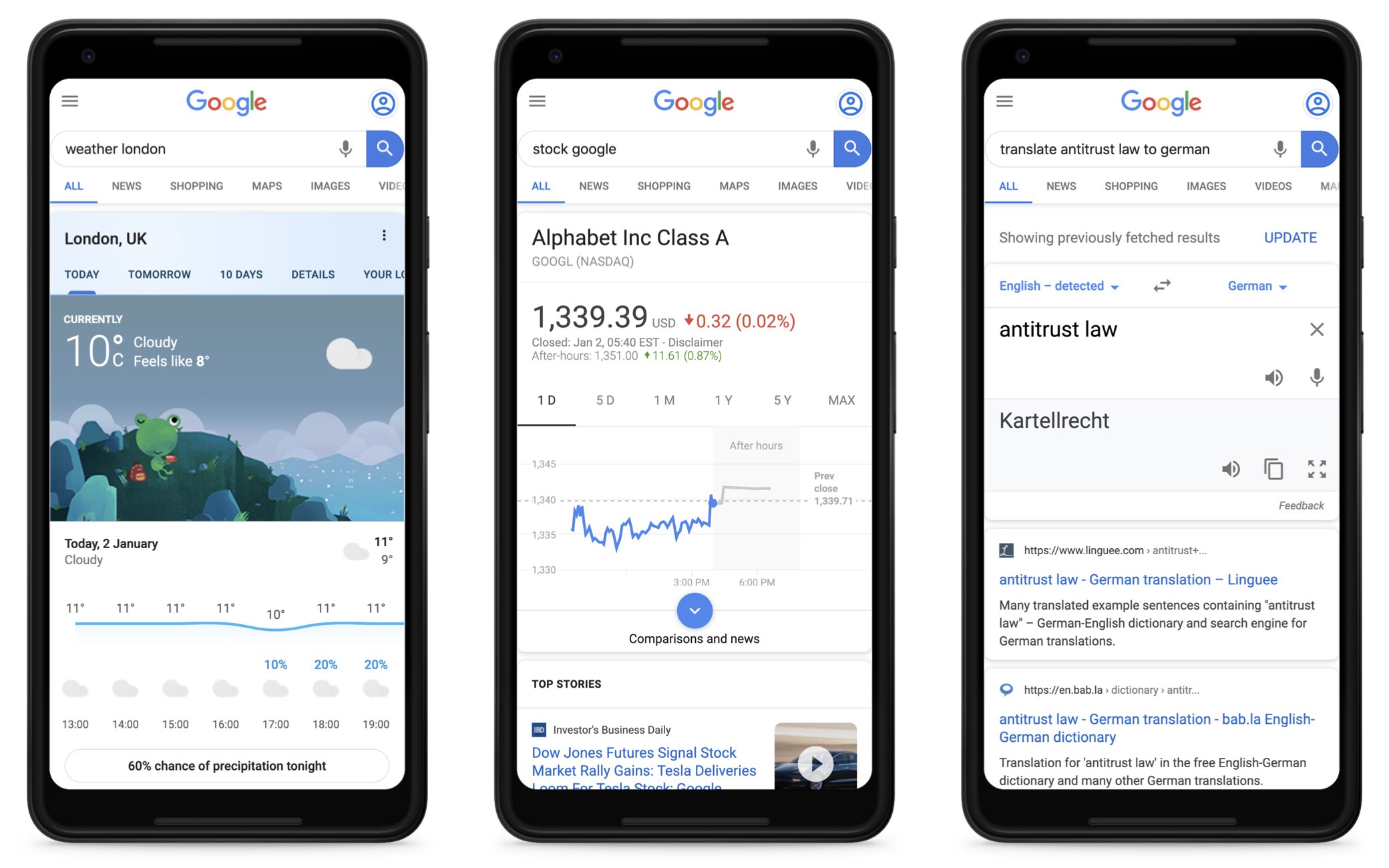Usually new-years SEO trends follow a rather simple pattern: pump out ten predictions in a scattergun approach and, if at least five of them are somewhat correct, the article will be considered a success in the next year-end-retrospect.
Today, at the beginning of the new year, I would like to try something else: there will only be one prediction and I am very certain that it will be accurate. This is due to the fact that, even in 2020, Google will not re-invent the web search, but rather keep improving and updating their current process.
The coming year will be characterised by an increased competition from Google itself, for many industries. While, in the past, it was mostly competition from your own industry that challenged your rankings, now it is Google who noticeably steps into the ring – with the slight but unfair advantage that Google actually owns the SERPs.
Google’s mission: 10 blue links?
Google is very clear in their own mission statement, which is the concise summary of what they believe their companies’ job is: “To organize the world’s information and make it universally accessible and useful”. While, for many years, their go-to tool for this was offering up the ten most relevant web results for a search (“10 blue links”), there has now been a fundamental change in recent years in how Google believes they can make the information more accessible across a range of areas: A search with the user intent “visit” is answered though a Google Maps product interaction, a flight search gets the Google Flights comparison product, videos are often found on Google YouTube and so on and so forth. The introduction of the Google for Jobs in the UK as well as the new Event-integration, this year, has shown all of us very clearly who owns the SERPs.

Google owns the SERPs
As SEOs, every new Google product in the SERPs feels like a dis-appropriation. Visibility, attention and ultimately visitors who, until now, came to our own sites after often laborious and long lasting efforts, are now staying within the Google-ecosystem. And while this perspective is understandable, it is wrong: the SERPs belong to Google and there is no fundamental right to rankings or visitors. As frustrating as the loss of these web search visitors may be, who were often believed to be safe, there is no legal claim to these visitors. And just because it worked for so many years, Google can (and will) change the rules over night.

Google’s optimisations are for their customers, the users
In order to stay on course for success, there is a need for Google to be global market leader. And even thought it might not feel like it, for those who transfer very, very large sums of money to Google every month, Google is very clear in who their customers are: the users. Google optimises for maximum demand, similar to other successful marketplaces (Amazon for example). This leads to the situation that publishers need to follow suit – regardless of whether they may want to. Due to a shortage of alternatives, these market leading platforms, such as Google, can dictate the rules. And from there, clever auction models take care of the rest: as marketplace operator, Google will always receive the best price.

The air is getting thinner for aggregators in 2020
By simply looking at the previous 12 month, Google’s path becomes blatantly obvious: with Google for Jobs they started their own job-posting aggregator in the US, UK and many other markets, the recipe search has been upgraded considerably and made more noticeable in the SERPs, a few weeks ago we could witness how the Event-integration went live in the SERPs, the hotel search was overhauled and expanded – and these were just the most noticeable changes last year. We need to assume that this development will at least continue this year, but it is likely to even accelerate. Google will expand and improve the current integrations and get into new, vertical markets.
That we, as SEOs, often look only at desktop search, while already more than half of all searches are done on smartphones, only helps to conceal these grave changes. These new Google elements are not nearly as visible on large desktop monitors as they are on smartphones. On mobile, you often have to scroll a few pages until you reach the first organic results.
Website operators in a Prisoner’s dilemma
The classic Prisoner’s dilemma from game theory: if two prisoners close ranks and deny being involved in a deed, both will get off reasonably lightly. If one of them decides to testify, however, he will be off the hook as key witness, while the other prisoner will get the maximum sentence. This is pretty similar to how the cooperation with Google currently works in regards to providing structured data – with the small difference that the collaborators will also receive the maximum sentence, just with a few years delay.
Google needs structured data for many of their own aggregators and vertical integrations. These boxes are only possible with structured data under the hood. This becomes apparent, for example, with the new recipe-integration, which is based on the Schema.org Recipe-Type as well as the job-search, which is based on the JobPosting markup. But there are also alternatives: if individual companies are in possession of the necessary information, Google may buy the company and incorporate the information into their products – as seen with the flight search, for example.
The Channel SEO is changing
It won’t take long before the first dooms-day prophets will invoke the end of SEO – that is nonsense. Google SEO will stay the most relevant traffic channel for most websites throughout the new decade. But SEO will change. Every website operator needs to ask the question: does Google need my website? And develop their strategy, content and added value accordingly. SEO will become more difficult, demanding, complex and maybe even unfair at times, but users are still searching for the first result to their questions.
